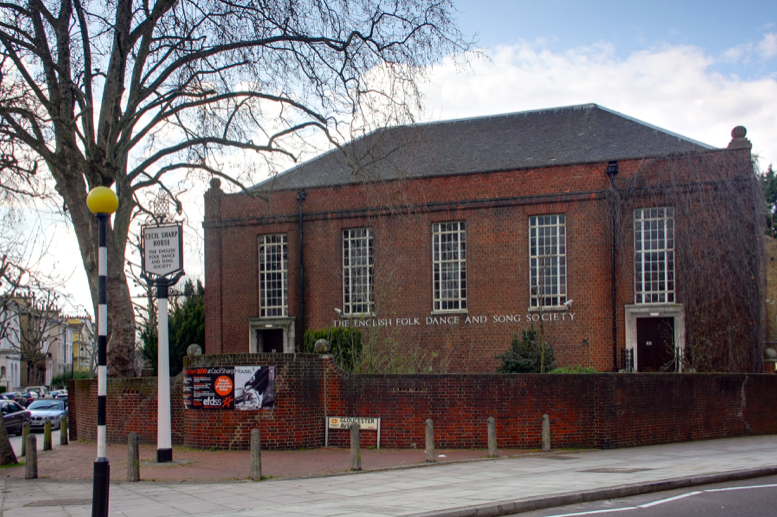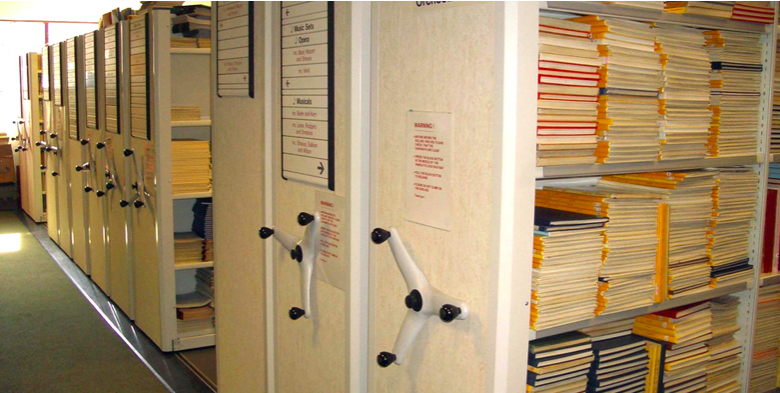In the latest of a series of blogs about the recent ASW – an insight into a maiden ASW from Masters student, Kirsty Morgan…
Having received the Music Library Trust bursary, I was very lucky and pleased to be able to attend IAML’s Annual Study Weekend in Leicester this year – and what an amazing and enlightening experience it was. As a music graduate, studying an Information and Library Studies Masters at the University of Strathclyde while also really enjoying working supply in public libraries, I am keen to work towards a career in music librarianship. This study weekend was, therefore, a fantastic opportunity to discover more about music librarianship, learn about some of the current issues surrounding music libraries, and meet and chat with very friendly and knowledgeable people who already work in the field.
This was my first conference so I found the buddy system, where first-time study weekend attendees are paired with someone who is more familiar with the conferences, to be a really helpful entry point. I was immediately put at ease and welcomed into the very inclusive atmosphere, and it was exciting to be surrounded by such an intense wealth of musical expertise and passion. I was a little intimidated, but mostly inspired by the high level of musical knowledge that everyone I talked to at the conference had; I am now a lot more familiar with the broad range of music provision and encoding software, Indian singing practices and necessary considerations for providing musical scores to suit performers’ requirements. The group-wide discussion on the challenges and decisions around printed music vs. digital tablets was fascinating, raising issues that I hadn’t considered before around licencing, performer preference and accessibility for disabled performers. The musical conversations were pervasive throughout the three days, even outwith the presentations and workshops, which I absolutely loved. In fact, it was the first evening at dinner, when one of the people at my table described the weather as “like the second act of Into The Woods”, that I felt like I was definitely in the right place!
I was interested when library concepts that I’d studied on my Masters course came up. The recurrence of copyright concerns throughout the study weekend really highlighted to me how particularly central copyright is within music libraries – and I was grateful that my Masters course had provided me with an up-to-date grounding in copyright law. I liked the framing of music publishers and music librarians as on the same side, working to provide a fair outcome for both composers and performers, and I think it will help me in my future library roles to be better able to visualise copyright conversations in this light.
Talking with other librarians also showed me that there’s a library vocabulary that I hadn’t realised my course had given me – describing a website as using faceted classification, for example, or being able to recognise Linked Data. My Masters dissertation, which I’m currently working on, examines using Linked Data to make smaller archives more visible online, so I found the British Library’s Digital Delius talk and the talk from the Vaughan Williams library about making folk music more accessible online to be particularly relevant. While I was already aware that these kinds of projects require a high level of financial and resource investment, both of these talks really drove home for me the vast extent of such an enterprise. I think this will really help any suggestions my dissertation makes for archives with fewer resources to be realistic. In addition, having made contact with the speakers of these talks, and learned about their projects, I feel it would be useful for me to contact them during my research to request interviews, in order to broaden the perspectives I can discuss and make my dissertation the best it can be!

It was exciting to discover the wide variety of roles that music library professionals could hold. Alongside academic subject librarians, conservatoire librarians, and music librarians from public libraries were music publishers, performance librarians and music archivists. I was very interested to hear about the Cecilia database, which aims to provide information about every musical collection in the UK. Although I can see many possible uses for such a database, for my current situation as a graduate looking to enter the music librarianship field, this resource will be invaluable for guiding me towards institutions that I can follow for job openings. I’d actually tried to find a resource like this when job searching in the past but despite Googling various search queries along the lines of “list of music libraries UK” and similar, I never found the Cecilia database – and, without attending the conference, I’d have probably never found it. If IAML decides to continue to support such a database, I think it might be worth examining how the database could be more widely publicised outside the IAML community and optimised for search engines.

A talk on the final day discussed the challenges of recruiting Library Studies graduates into music libraries, and the considerations raised were really informative. Music libraries need librarians who are knowledgeable about music, but they also require them to understand library systems. Although there are American music library courses, Aberystwyth is the only British university that provides specific music library training – in a single module. While I agree with the speaker that it wouldn’t be especially feasible to devote an entire postgraduate course to music librarianship due to the small number of students who would be interested, able and willing to narrow their scope so early in their career path, I will say that it was really nice to meet a few other students from different library courses across the UK who are also interested in music librarianship and I enjoyed finding out about the differences between the modules that the other library courses offer.
The weekend provided an insight into the world of music librarianship and really cemented for me that this was a profession and community that I want to be part of. All that remains, I think, is to thank IAML, the Music Library Trust, and my sponsors Stainer & Bell for providing me with this fantastic opportunity; and thank you to everyone who attended this year’s conference for being really friendly and making me feel welcome.
Kirsty Morgan (University of Strathclyde)